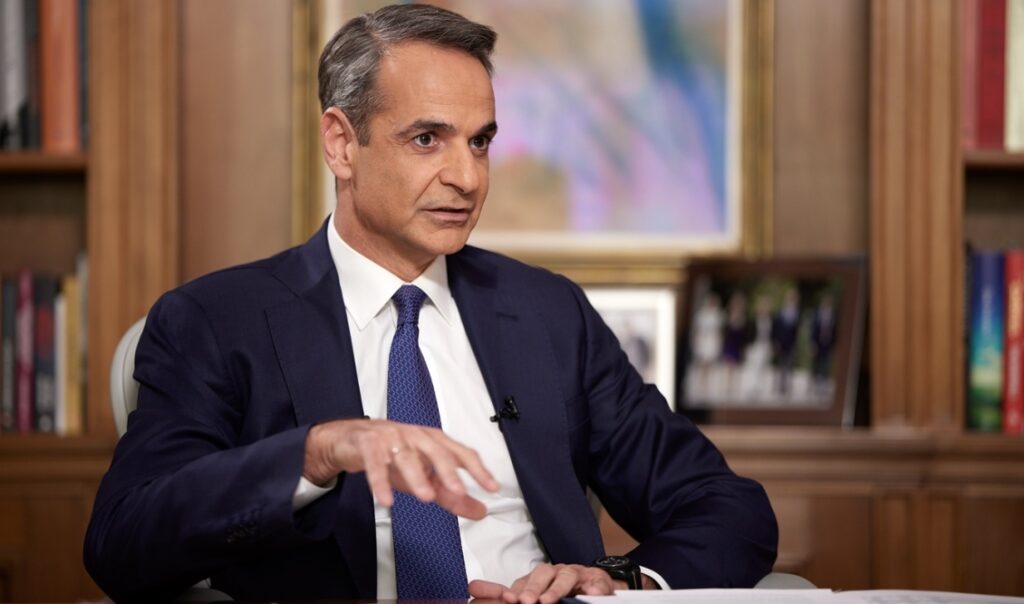International news agency Bloomberg published an extensive report on the relief measures that Kyriakos Mitsotakis‘ government will present during his announcements at the Thessaloniki International Fair. The report makes special reference to the steps taken by the Greek economy, particularly the country’s fiscal consolidation, leaving behind the years of debt crisis. Among the measures the government is considering are tax cuts for the middle class, family support, and increased spending for pensioners as well as security force members.
Taking advantage of significantly higher revenues, as noted in the report, the prime minister will present a series of benefits that could lay the foundation for him to become Greece’s longest-serving leader in more than two decades.
While details, as noted by the financial network, have not yet been finalized, the planned package of measures could ultimately exceed €1.5 billion. Provided that Greece’s budget continues to outperform, the government may also consider more relief measures in April, sources told Bloomberg.
Bloomberg on Mitsotakis: He has fiscal space that other European leaders would envy
However, the news agency notes that the crackdown on tax evasion that led to a massive increase in tax compliance across Greek society has given Mitsotakis fiscal space that other European leaders would envy, despite the fact that debt exceeds 140% of GDP and remains the largest in the region.
The result so far has been a surprise budget surplus in 2024 that defied predictions of a deficit, followed by similar positive forecasts expected for this year. The contrast with countries from France to the United Kingdom, which face market skepticism as they struggle to tame runaway deficits, is striking, the report notes characteristically.
“The high-tech measures implemented by tax authorities have helped”
“The government’s efforts to tackle tax evasion are bearing fruit and deserve recognition,” said Joong Shik Kang, head of the Greece mission at the International Monetary Fund, which played a central role in overseeing the country during the crisis period. “The results are quite remarkable,” he added. In 2009, when the crisis erupted, the shadow economy was estimated at 27% of GDP. Non-compliance had evolved into a permanent “wound” for public revenues, fueling a sense of injustice in society and undermining the country’s credibility abroad. A multidimensional approach, leveraging digitization of payments and collections, streamlining government procedures, and implementing “nudging” tactics to significantly increase tax compliance, brought about a reversal of the negative climate. The turnaround was so significant that it makes it a case study for other countries, according to Kang.
According to Bloomberg, the high-tech measures implemented by Greece’s tax authority have helped. At the heart of its Athens headquarters there is a “war room” where giant screens broadcast real-time ship movements, transaction flows, and other critical information. Drones monitor activities on the islands, while special tax evasion control operations, such as the one conducted in August in Santorini with cruise ship passengers, present a different image of the country.
The tax authority has set combating tax evasion as a strategic goal, which, besides being an economic and social problem, was also a black mark on the country’s international image, said the head of the Authority, Giorgos Pitsilis.
In statistical terms, the results are tangible. In 2018, the so-called VAT compliance gap – a measure of the estimated difference between potential value-added tax revenues and the actual amount collected – was 25.4%. By 2022, the percentage had decreased to 13.7%, according to European Union data. The significant increase in public revenues without increasing the tax burden “shows that our efforts paid off,” Pitsilis told Bloomberg.




